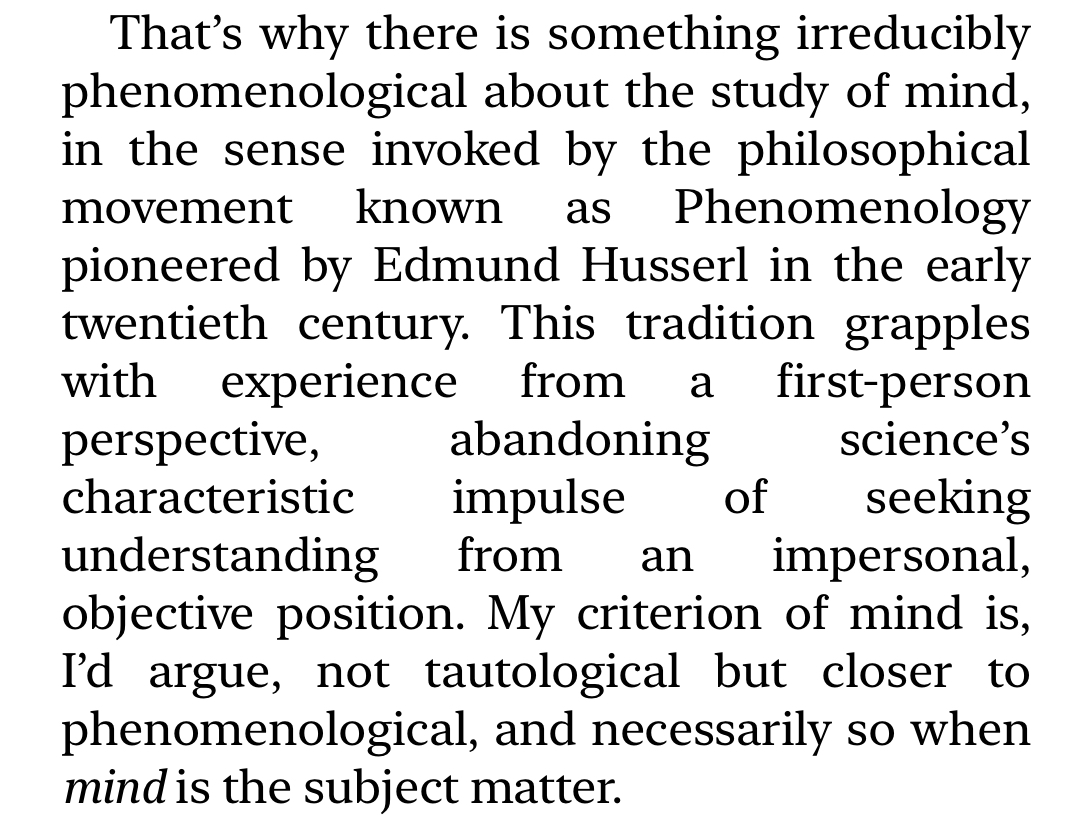The Book of Minds 2
For some reason I can’t fathom, the study of minds oscillates between skepticism and credulity.
There is solipsism: how do you know any other mind besides your own? The credulous position: I know the mind of everything, including that of God.
Kinds of minds: leading to two extreme positions — only humans have minds and everything has a mind.
The extreme positions - arguably - have philosophical importance, but make for poor science. Consider how much ink has been expended on discussing whether robots can have minds. Exciting at one level, but hasn’t contributed much to the development of robotics.
We are in an exploratory phase of the mind sciences, where questions of principle must be set aside in favor of provisional definitions, hypotheses and experimentation. Instead of asking ‘do plants have minds?’ we should sniff across the living world in a mental vein. One pragmatic way of doing so is to proceed by analogy: start with our minds and confer mindedness on others to the extent they exhibit behaviors that resemble ours:
That may seem like the conservative thing to do, but it may be a flawed strategy for two reasons:
It over attributes human like mentality to all kinds of objects and creatures.
It under attributes mentality to objects and creatures that are unlike us.
What’s a good starting point for a generous exploration of mentality across the living world, one that’s open to minds being quite common, without those minds being like ours? We are still seeking the right balance between speculation and skepticism.
Unfortunately, our mental exploration is taking its baby steps when the biological sciences have reached a high level of sophistication, and we end up mixing sophisticated biological models with tentative and crude mental models - the lazy scientist relabels studies of plant physiology as studies of information processing in plants and jumps into discussions of plant consciousness. Better to proceed slowly and with an open attitude
Ultimately, we are making one of two bets:
The study of the mind is the icing on the cake of existing science, with physics grounding biology and biology grounding the mind. aka the Standard Model. It’s the attitude that leads to books like Christof Koch’s Consciousness: Confessions of a Romantic Reductionist. The Standard Model requires hard nosed skepticism with a dollop of adventure.
The study of the mind is an opportunity to reorient the course of science in new, exciting directions different from those of the past four hundred years. There could even be new physics! aka the Speculative View. It’s a much riskier proposition for most attempts to do so descend into sentimentality or glorification of some past religious/cultural tradition. It’s hard to maintain a sense of child-like innocence when the big boys are walking the neighborhood, but I will try.
Ball is a journalist, not a scientist, so he doesn’t have to be a skeptic or a romantic. And since he’s crafting a narrative instead of making an argument, he’s happy to start with state of uncertainty:
He will soon provide a definition (one that I will unpack in ways that he doesn’t intend) but let’s sit with this state of ambiguity for a minute: we want the term ‘mind’ to cover entities that are unlike us, and yet we don’t want to reduce the mind to mean some familiar properties of matter. Ball starts with a nod to Husserl and Phenomenology:
I am in agreement here: a disciplined and rigorous first-person approach to the mind marks a departure from existing scientific practice (yay romantic science!) but how do we get to the first person of persons who are unlike us? How do we get to the phenomenology of radically non-human beings? Nagel and his bats are knocking on Husserl’s door.










